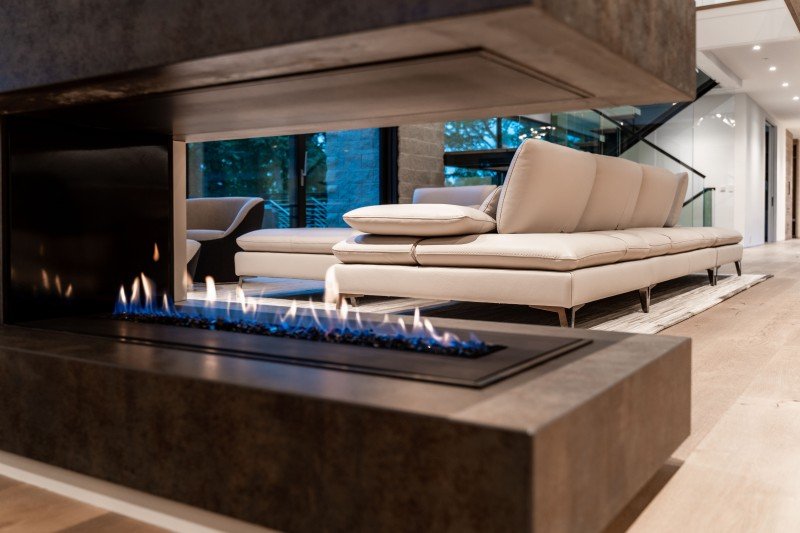10 Best Books On Fireplace Store
The Ultimate Guide to Fireplace Stores: Everything You Need to Know
Fireplaces have actually long been a sign of heat, convenience, and design within a home. They develop a focal point in living areas and offer a comfortable atmosphere for households and pals to gather around. As an outcome, the fireplace market has seen a surge in need for different designs, models, and accessories. This post explores what to think about when going to a fireplace store, types of fireplaces available, and responses to often asked concerns, providing a detailed summary for property owners aiming to buy.
The Importance of Choosing the Right Fireplace Store
Purchasing a fireplace is a considerable investment, making it important for house owners to pick a trusted and well-informed fireplace store. Here are some reasons why picking the best store matters:
Wide Variety of Options: A trustworthy fireplace store offers a diverse series of fireplaces, including wood-burning, gas, and electric choices. This variety ensures that house owners can find the best suitable for their taste and requirements.
Expert Guidance: Knowledgeable staff can supply important insights into the advantages and disadvantages of each kind of fireplace, assisting clients make informed decisions.
Quality control: Established shops are more likely to carry high-quality products from reputable brands, ensuring customer fulfillment and safety.
Installation Services: Many fireplace stores offer setup services and after-sales support, guaranteeing that the unit is not just acquired however is likewise properly set up and kept.
Customization Options: Some shops offer custom-built fireplaces, accommodating unique preferences in design, size, and functionality.
Kinds Of Fireplaces Available
When exploring a fireplace store, clients will experience numerous types of fireplaces. Comprehending Large Fireplaces can help in selecting the ideal one for a home.
1. Wood-Burning Fireplaces
- Description: Traditional type that utilizes wood logs as fuel.
- Benefits:
- Offers a timeless ambiance and the crackling sound of burning wood.
- Can be more affordable in areas abundant in wood supply.
2. Gas Fireplaces
- Description: Uses gas or propane and ignites with the flip of a switch.
- Benefits:
- Easier to run and maintain than wood-burning models.
- Provides a consistent heat output and can be more energy-efficient.
3. Electric Fireplaces
- Description: Uses electrical power to produce heat and produce a flame impact.
- Benefits:
- Requires no venting, making setup easier.
- Offers various settings for flame and heat intensity.
4. Gel Fuel Fireplaces
- Description: Uses gel fuel cylinders to develop an authentic flame without venting.
- Advantages:
- Portable and easy to set up.
- No requirement for a chimney or gas line.
5. Ethanol Fireplaces
- Description: Burns bioethanol fuel, providing a genuine flame.
- Advantages:
- Environmentally friendly with no smoke or ash.
- Can be utilized indoors or outdoors.
Fireplace Type
Fuel Source
Vent Requirement
Setup Cost
Maintenance
Wood-Burning
Wood
Yes
Moderate
High
Gas
Natural Gas/Propane
Yes (or optional)
Low
Low
Electric
Electricity
No
Low
Really Low
Gel Fuel
Gel Fuel
No
Extremely Low
Very Low
Ethanol
Bioethanol
No
Low
Low
Elements to Consider When Shopping
When going to a fireplace store, several factors must be considered before making a purchase:
Space: Measure the area where the fireplace will be installed to ensure the chosen design fits easily.
Heating Needs: Assess the square video of the room to figure out the required heat output.
Style: Choose a fireplace that complements existing décor, whether it's rustic, modern, or traditional.
Spending plan: Set a budget plan that consists of both the unit's purchase and setup expenses.
Regional Regulations: Check community building codes regarding fireplace setup to make sure compliance.
FAQs About Fireplace Stores
1. What is the best kind of fireplace for a home?
The “best” type depends on the homeowner's requirements and preferences. Gas fireplaces are popular for their convenience, while wood-burning fireplaces offer a classic experience.
2. How much does a fireplace cost?
Expenses can differ considerably based on the type, style, and setup intricacy. Standard models might begin at a few hundred dollars, while custom units can exceed numerous thousand.
3. Are electric fireplaces safe?
Yes, electric fireplaces are usually considered safe. They do not produce genuine flames or emissions, lowering the risks associated with traditional fireplaces.
4. How do I keep my fireplace?
Maintenance varies by type. Wood-burning designs require cleansing of the chimney and flue, while gas fireplaces may need yearly inspections. Electric fireplaces normally require minimal upkeep.
5. Can I install a fireplace myself?
While some electric and gel fireplaces can be installed as DIY projects, it's normally best to employ specialists for gas and wood-burning fireplaces to ensure safety and compliance with building regulations.
Choosing the ideal fireplace store is simply as essential as selecting the type of fireplace itself. Property owners should weigh their alternatives thoroughly, thinking about factors such as installation requirements, heating requirements, and general aesthetic appeals. With the right info and assistance from well-informed staff, clients can with confidence select a fireplace that perfectly matches their home while offering heat and convenience for several years to come.
